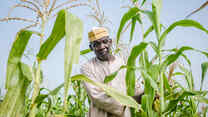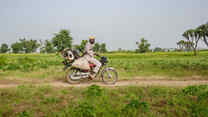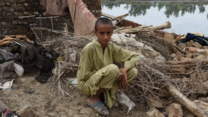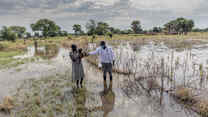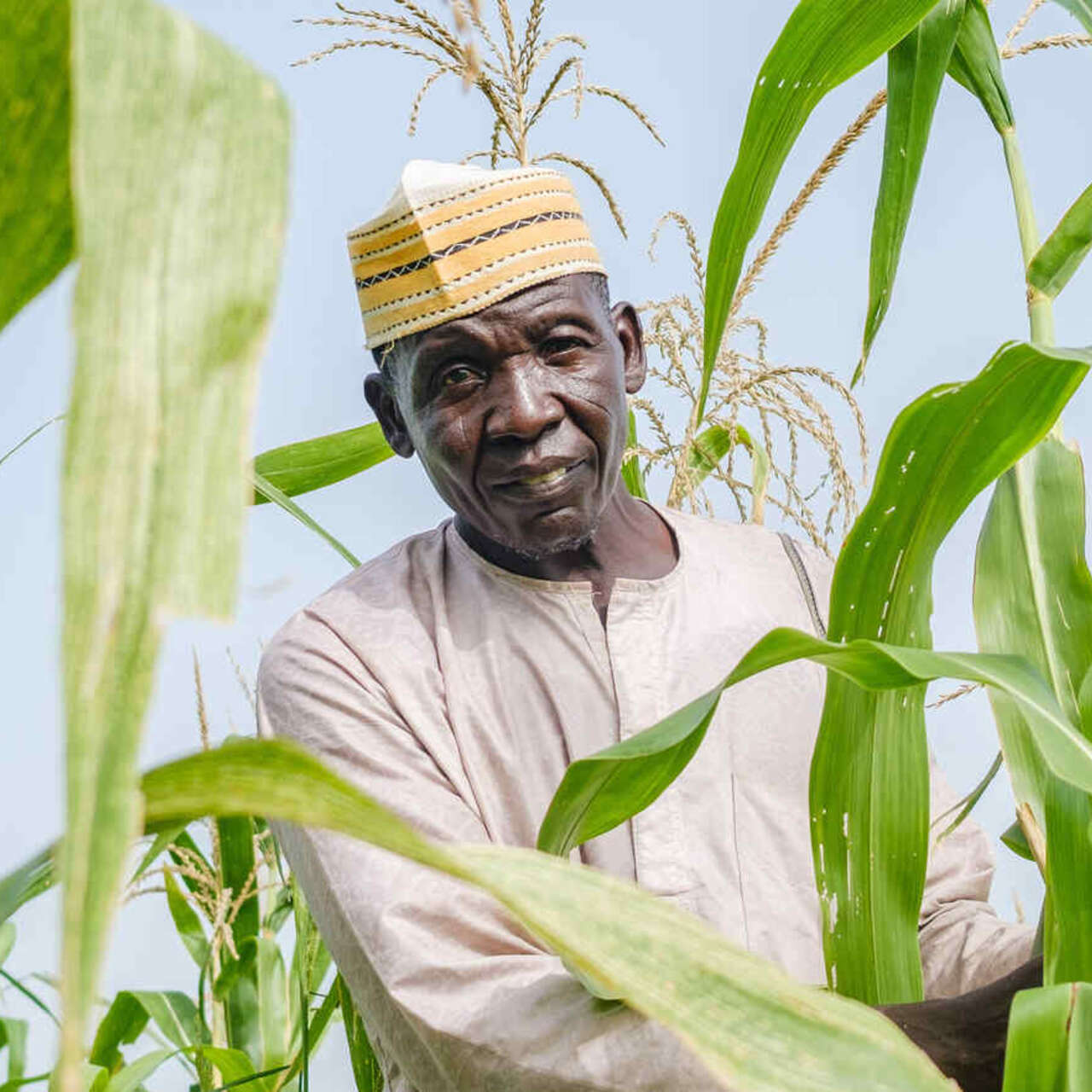
Climate change is not just a future event. For many people around the world, it is happening right now.
Learn how the IRC is coming together with partners from across sectors to help families on the frontlines of the climate crisis.
What is climate resilience?
When we talk about climate resilience, we are referring to the ability of communities to recover from or mitigate the impact of climate-related events. This is especially challenging for low-income or conflict-affected countries, where people may lack access to sufficient funds, infrastructure or information to cope with these crises effectively.
Creating climate-resilient jobs
The IRC’s Re:BUiLD Program - made possible with support from the IKEA Foundation - is working to develop skills and improve access to employment in climate-resilient jobs across climate-impacted countries like Uganda.

Francis is a Congolese refugee living in Kampala, Uganda. As a refugee, he faced discrimination and found it difficult to find work in the city, but his farming background gave him an idea for a business. He convinced his landlord to let him farm the small plot of land around his property. With additional help from the Re:BUiLD programme, he has turned the urban farm project into a business raising chickens, rabbits and growing vegetables.
The Re:BUiLD programme trains people in Kampala to use urban farming techniques in order to build climate resilience within cities. Francis has found innovative ways to protect his crops, using rabbit urine to create a natural insecticide to kill pests but also as a rich source of organic fertilizer. This has, in turn, been beneficial to the rabbits, who have used the field as a source of food.
Tackling impacts on health
The climate crisis is, in many ways, also a public health crisis.
Climate change has severely impacted Pakistan, manifesting in heightened vulnerability to extreme weather events and causing substantial economic and societal disruptions. A stark indicator is the 2022 floods, which displaced 8 million people and affected an additional 33 million, resulting in estimated economic damages of $14.9 billion and a total rehabilitation requirement of $16.3 billion.
These climate-induced disasters—floods, heatwaves, droughts, and wildfires—put Pakistan's health systems under intense strain, as diseases and infections spread rapidly, often worsened by a shortage of clean water and increased health needs.
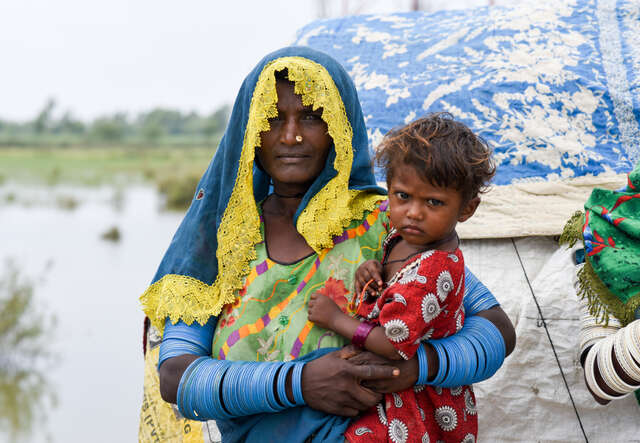
To address these challenges, Foundation S, Sanofi’s philanthropic organisation – partnered with the IRC to implement climate adaptations for strengthening community health resilience in two districts (Swat and Buner) of Khyber Pakhtunkhwa. This partnership adopts innovative measures to address climate-driven health challenges by profiling climate-induced diseases prevalent in the area and developing tailored training programs for healthcare workers and community-based organizations. These programs aim to equip local teams with the skills and knowledge needed to respond effectively to health crises exacerbated by climate change.
A central component of the initiative is creating a community action plan to serve as an anticipatory measure, helping prevent the spread of climate-related diseases. In response to a dengue alert issued by national and provincial authorities, the IRC successfully distributed Dengue Kits to at-risk communities, effectively curbing the spread of the disease in targeted areas.
Furthermore, the project collaborates with local organisations to mobilise and prepare communities against climate-induced diseases. This collective effort not only strengthens health infrastructure but also empowers communities to proactively adapt and respond to climate-related health risks, ultimately contributing to more resilient health systems.
Anticipating climate disasters
One way that communities are adapting to the climate crisis is by taking action before climate shocks occur. Anticipatory action projects focus on taking steps to prevent or mitigate the impacts of a climate-related event. By using early warning systems, organisations can deliver anticipatory cash payments to people in the region, who can take swift action to prepare themselves before disaster strikes.
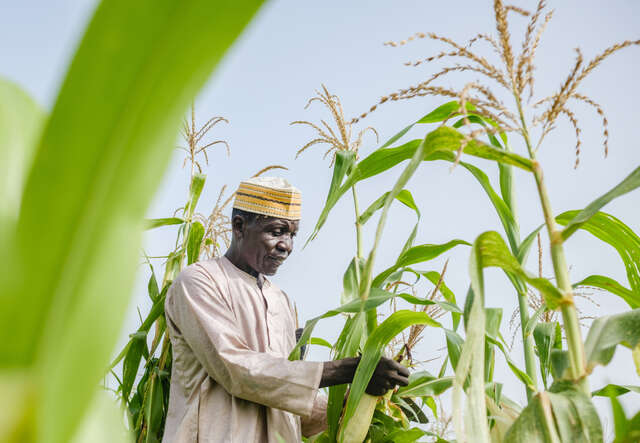
Nigeria is highly vulnerable to climate-related flooding. With support from Google.org, the IRC partnered with the International Food Policy Research Institute (IFPRI) and the Center for Disaster Protection, to pilot and evaluate the effects of early warning messages and anticipatory cash interventions to protect the livelihoods of people who raise livestock and grow crops. These communities are threatened by an increasing occurrence of severe flooding in the northeastern state of Adamawa. Building on this successful pilot in 2022, the IRC received additional support from Google.org to deliver aid and cash support.
Addressing disrupted education
Since 2020, 62 million children and adolescents have had their education disrupted by climate shocks such as droughts and floods.
To strengthen the climate resilience of Nigeria’s communities, we are joining Education Above All (EAA) Foundation and the Bill and Melinda Gates Foundation to support 1,000 out of school adolescents and youth, to access vocational, literacy, numeracy and life skills to strengthen their ability to be resilient to climate-related shocks and stresses. The program also integrates education, health and environmental health with economic recovery and development. As families are forced to move to new areas due to impacts from heavy rainfall, more children and youth stop attending school—leaving them with limited or no access to education services. In addition to providing farming equipment and life skills to boost incomes, this program will support learning opportunities for out of school adolescents and youth.

How can I help?
The IRC supports communities at the forefront of the climate crisis. We help people adapting to climate change by identifying hazards, promoting sustainable livelihoods, and prioritizing the needs of women and girls.
Learn more about climate change
Donate to support the IRC's work around the world.
In addition, the ambitious IRC climate action plan has set us on a course to change how we work to reduce our carbon footprint. We have also committed to reaching net-zero greenhouse gas emissions by 2050.
